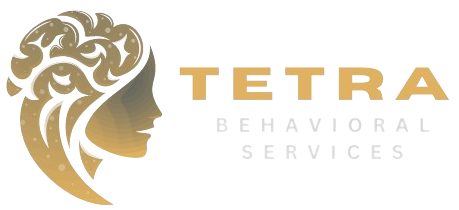Understanding ADHD: A Brief Overview
This is a neurodevelopmental disorder usually diagnosed in childhood and lasts into adulthood. Children often have trouble paying attention and controlling impulsive or overly active behaviors. It is characterized by difficulties in sustaining attention, hyperactivity, and impulsivity. Individuals with ADHD may struggle with organizing tasks, maintaining focus, and controlling impulses, which can significantly impact their daily functioning.
Types of ADHD:
There are three main types of ADHD:
Predominantly Inattentive Presentation: Individuals with this type of ADHD have difficulties with attention and organization but may not display hyperactivity or impulsivity to the same degree.
Predominantly Hyperactive-Impulsive Presentation: This type involves symptoms of hyperactivity and impulsivity without significant issues with attention.
Combined Presentation: This type involves a combination of symptoms from both inattentive and hyperactive-impulsive presentations.
Symptoms of ADHD:
The ADHD symptoms can be severe and can cause difficulty at school, at home, or with friends. ADHD can present itself depending on the types of symptoms in an individual, which can either be predominantly inattentive presentation, predominantly hyperactive and impulsive presentation,.
Inattention
- Difficulty sustaining attention
- Making careless mistakes
- Being easily distracted
- Forgetfulness in daily activities
Hyperactivity
- Fidgeting
- Restlessness
- Difficulty staying seated
- Excessive talking
- Always on the go
Impulsivity
- Acting without thinking
- Interrupting others
- Difficulty waiting for turns
- Making decisions impulsively
Diagnosis and Treatment:
Diagnosing ADHD involves a comprehensive evaluation of the individual’s symptoms, medical history, and functional impairments. While there is no cure for ADHD, it can be effectively managed with a combination of strategies including medication, therapy, behavioral interventions, and lifestyle modifications.
Medication: Stimulant medications such as methylphenidate and amphetamine are commonly prescribed to manage symptoms of ADHD. Non-stimulant medications like atomoxetine may also be used, particularly in cases where stimulants are not well-tolerated or deemed inappropriate.
Therapy: Behavioral therapy, including cognitive-behavioral therapy (CBT) and parent training, can help individuals with ADHD develop coping strategies, improve organizational skills, and manage impulsivity.
Lifestyle Modifications: Establishing routines, creating structured environments, and implementing organizational strategies can help individuals with ADHD better manage their symptoms and improve overall functioning.
Conclusion:
ADHD is a complex disorder that requires a comprehensive approach to diagnosis and treatment. With proper management, individuals with ADHD can lead fulfilling lives and achieve their full potential.
ONLINE ADHD APPOINTMENT
Avoid the hassle of waiting rooms and access expert ADHD treatment from the comfort of your home with TETRA BEHAVIORAL SERVICES.
Schedule Your ADHD Consultation
Make an appointment online, call us, or email us.
Connect with Your Doctor Online
Talk to one of our ADHD specialists from the comfort of your home.
Frequently Asked Questions
ADHD symptoms often appear in childhood, usually before the age of 12. However, it can persist into adolescence and adulthood.
ADHD is often a lifelong condition, although symptoms may change over time and individuals can learn to manage them effectively with appropriate treatment and support.
There is currently no cure for ADHD, but with proper treatment and support, individuals with ADHD can lead successful and fulfilling lives.
Some common misconceptions about ADHD include that it only affects children, that it’s simply a lack of discipline, and that medication is the only treatment option.
ADHD can impact school performance by making it difficult for students to focus, stay organized, and complete tasks. However, with appropriate accommodations and support, students with ADHD can succeed academically.
Yes, ADHD can persist into adulthood, and many adults may not be diagnosed until later in life. Symptoms in adults may manifest differently than in children but can still significantly impact daily functioning.
© 2024 Created by Harbor SEO COMPANY

